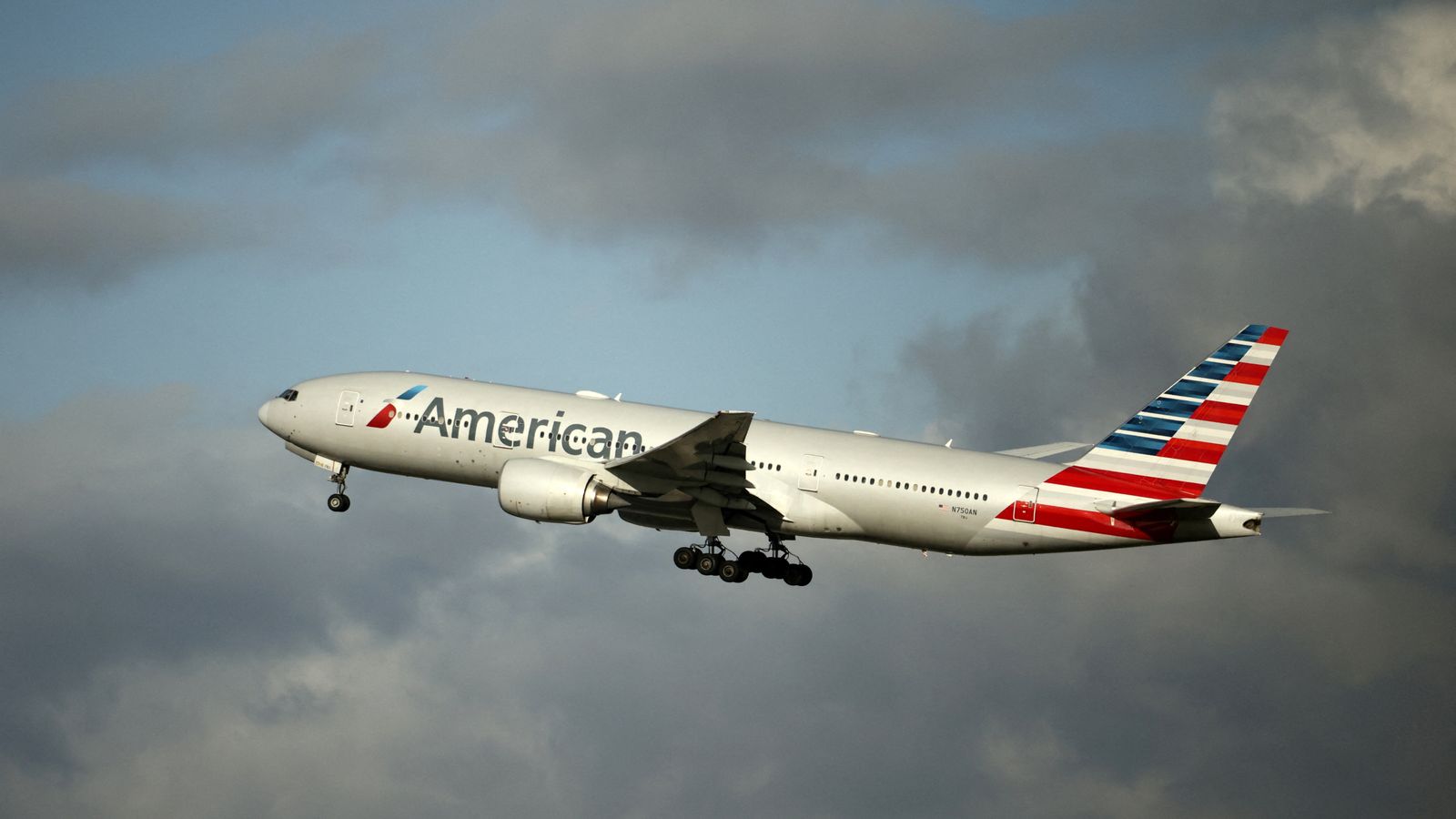The chief executives of several major American passenger and cargo airlines have warned of an impending “catastrophic” crisis that could come in less than two days when telecommunications companies deploy a new 5G service.
The new C-Band 5G service set to be rolled out by AT&T and Verizon on Wednesday could leave a significant number of widebody aircraft unusable, the airlines warned.
It could also “potentially strand tens of thousands of Americans overseas” and cause “chaos” for US flights, they said.
“Unless our major hubs are cleared to fly, the vast majority of the traveling and shipping public will essentially be grounded,” wrote the chief executives of American Airlines, Delta Air Lines, United Airlines, Southwest Airlines and others.
5G: What is it, what will it do, and is it safe?
The Federal Aviation Administration (FAA) has warned potential interference could affect sensitive aeroplane instruments such as altimeters and significantly hamper low-visibility operations.
“This means that on a day like yesterday, more than 1,100 flights and 100,000 passengers would be subjected to cancellations, diversions or delays,” the letter warned.
On Monday, several airlines were considering whether to cancel some international flights scheduled to arrive in the US on Wednesday.
“With the proposed restrictions at selected airports, the transportation industry is preparing for some service disruption. We are optimistic that we can work across industries and with government to finalize solutions that safely mitigate as many schedule impacts as possible,” plane maker Boeing said on Monday.
The letter calling for urgent action was also signed by UPS Airlines, Alaska Air, Atlas Air, JetBlue Airways and FedEx Express.
“To be blunt, the nation’s commerce will grind to a halt,” it claimed.
The FAA has said it “will continue to ensure that the traveling public is safe as wireless companies deploy 5G. The FAA continues to work with the aviation industry and wireless companies to try to limit 5G-related flight delays and cancellations”.
AT&T and Verizon have agreed to buffer zones around 50 airports to reduce interference risks.
They also agreed to delay deployment for two weeks until Wednesday after previously delaying service by 30 days.
The telecommunications providers have argued C-Band 5G has been successfully deployed in around 40 other countries without causing issues by interfering with airlines.
